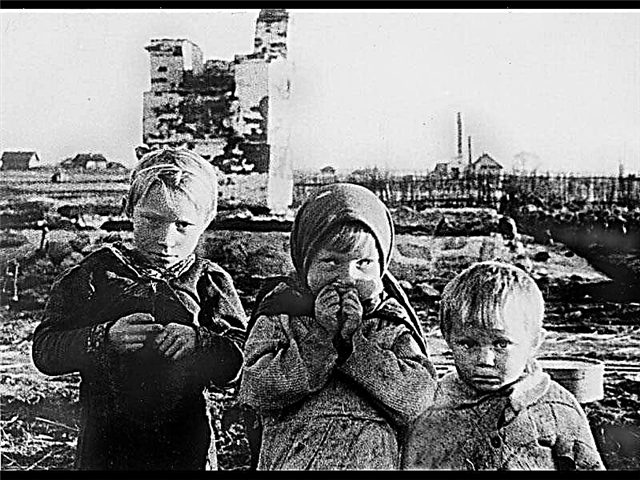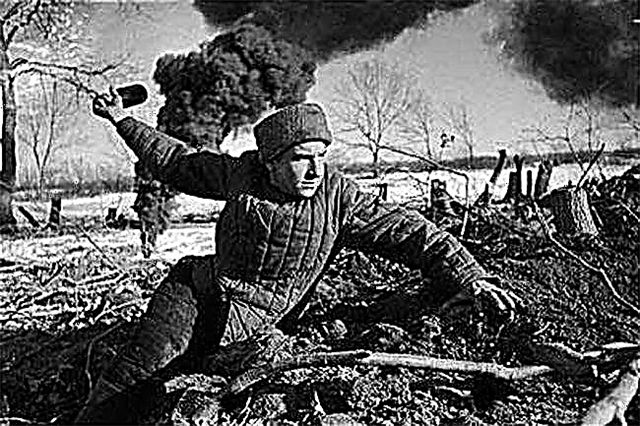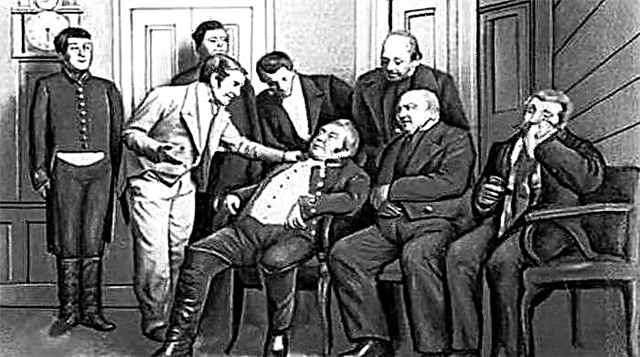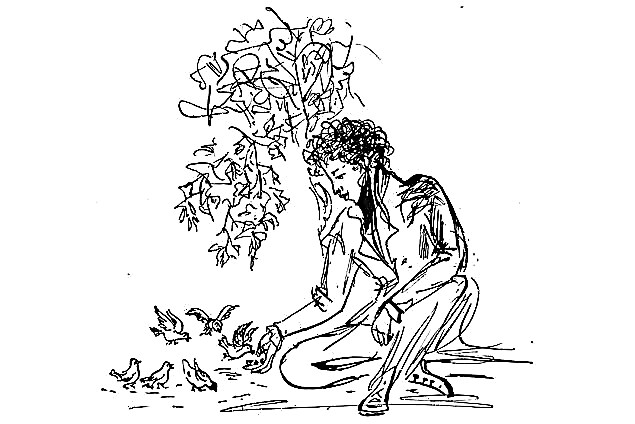Jane Austen is one of the most popular writers of the late 18th and early 19th century. Most are known for their novel Pride and Prejudice, but this is not her only successful work. All her works are saturated with real emotions and filled with interesting thoughts. In each story, morality embraces any action of heroes with a fine thread, indicating the fidelity and incorrectness of their decisions and actions.
History of creation
Jane Austen began writing this story at the age of 21. Having finished working on it, the writer gave the manuscript to the publishing house, but there she was refused. I had to postpone the publication of the book for a long 15 years. Before trying again to print this novel, Austin did a good job, completely editing and improving the material.
Initially, the novel was called First Impression, which is exactly what she called it in a letter to her sister. Then in 1811 or 1812 (there is no exact data), the writer renames the book “Pride and Prejudice”. Presumably, the name was changed in order to avoid travelers with other works of the same name. There is a hypothesis that until the manuscript was completely edited, the First Impression was a novel in letters.
Jane Austen sold Pride and Prejudice to publisher Thomas Egertan. He, in turn, published the first edition in three volumes on January 27, 1813. The second edition was published in November of the same year. The third edition was published in 1817. The name of Jane Austen was not written in the edition of the book, the line “author” stated: “written by the author of Sense and Sensitivity” (“Mind and Feelings”).
Genre, direction
The work is written in the genre of romance. All Austin's works are characterized by the direction of realism. All situations in her work are connected with marriage of convenience, with love between people from different levels of society - a characteristic feature of that time. This was true then, and still relevant.
The whole narrative of the novel goes on behalf of Elizabeth. The reader takes over the vision of the heroine. Feels the world through her eyes, her thoughts. This feature is characteristic of almost all the works of the author. We will learn about the feelings of other characters through letters. They also contribute to the further disclosure of the characters of certain actors. So, in one of the letters we learn about the essence of Mr. Wickham. Through him, the inner world of Mr. Darcy himself is revealed.
Essence
At that time, married by calculation. Roughly speaking, if a party is beneficial for the future and for the family, then there is nothing to talk about. The wedding will be. Getting married, marrying for love is a rarity for people of that time. The book is dedicated to this problem: the heroine stubbornly defends her right to control her feelings. Perhaps the writer wanted to show with this work that to defend her desire to marry for love is not so bad. Yes, there will be misunderstanding on the part of society, but on the other hand there will be no difficulties living in the company of a not-so-beloved person.
Despite the pressure of the environment, as the example of the heroine proves to us, it is worth staying true to yourself. If you feel that you are doing the right thing, that your feelings do not deceive you, and you understand that otherwise it will be worse for you, then you must continue to be confident in this and not give in to other people's provocations. This is the only way to stay happy and pass for a solid person who cannot be broken by other people's opinions.
The main characters and their characteristics
- The protagonist of the novel is Elizabeth Bennet - a sensible girl, knowing exactly what she wants. Lizzy, as her father affectionately calls her, is not able to adapt to anyone's desires. She is ready to go against the majority opinion if she is sure that the solution they proposed will not bring her happiness. Despite her good mind, she is not without a light and cheerful disposition. He likes to play a trick and laugh, favors the whims of his family. She is not so insightful, but this is her charm. Over time, she will be able to discern the true face of the people nearby. She judges them on the basis of the first impression, but can also easily change her mind when she realizes that she was mistaken in a person.
- Mr. Darcy - Another main character. His image is composed of the basic features of a rich and dignified man. It combines nobility with arrogance, a great mind with neglect, a closed behavior with a big heart. Mr. Darcy is characterized by a different upbringing than by Elizabeth Bennett. He is a man of noble blood, belongs to a different level of society. He honors everything restrained, neat and clear. He does not understand the life of a small town. Initially, it seems that this hero is a negative character, but during the narrative his image is revealed. It becomes clear that despite the betrayal of a friend who was like a brother to him, despite the fact that it was difficult for him to accept his feelings for Elizabeth’s “simple girl”, he showed his nobility, he helped Miss Lydia Bennett without any personal gain. He is the ideal of many girls.
Themes and Issues
- Obviously affected pride problem, which becomes an obstacle between lovers or loved ones. It destroys feelings, makes you resist and feel like an absolute “sheep” from the fact that you are at an impasse and do not want to budge at least a millimeter. You see only a wall in front of you, but if you strain and look to the side, you can see that this wall is easy to get around, you just need to understand that pride means nothing when it turns into pride and arrogance, nourished by prejudice.
- The problem of social inequality and, as a consequence, prejudice. Jane Austen very successfully changed the name of the book. Indeed, in fact, it makes one wonder which of them is proud and which is biased. Mr. Darcy touched the pride of Elizabeth, saying that she was not so beautiful and smart to be able to keep him company in the dance. Mr. Darcy is just prejudiced about Lizzy because of her family and first impression. It seems to him that a woman who is lower than his origin and having such “strange” relatives cannot be near him. But all this can be turned in the opposite direction. Mr. Darcy is too proud to even notice Elizabeth and show even a drop of indulgence towards her, and Elizabeth is too biased about his behavior in society, because he behaved very arrogant and arrogant. She had a definite opinion on his account, therefore, she was already prejudiced and could not discern something more serious and different in him.
- Again and again, the author touches the topic of other people's influence on the opinion and action of a person. So, Mr. Bingley was seriously influenced by Mr. Darcy. He, having not been convinced of his own arguments, assured the poor lover that Jane was not particularly interested in him as her future beloved wife, rather, she was simply worried about the desire to get married in order to satisfy her mother’s requests and leave her home as soon as possible. But in fact, Jane was a more subtle nature, which carefully concealed her feelings so as not to seem frivolous.
- From this we can deduce another small problem that is revealed in this work - character closure problem. To hide their feelings so much that the beloved does not even a bit guess about reciprocity - it is not always good. But this is a personal matter for everyone. Too individual.
- Also affected to some extent family and parenting. The relationship between Jane and Lizzy is a great propaganda for modern society. Friendship between sisters, respect for parents, love between parents, share of humor - all this is a combination of ideal components that form a strong bond in the family. Although their middle sister Mary was very different in character from the other two, she was loved. The family is multi-character and so good. In addition, the children were brought up on their own by Mrs. Bennet, without governesses. For high society, this is an indicator of recklessness, but, nevertheless, she managed and raised worthy daughters. Though Miss Lidi didn’t quite live up to her mother’s expectations. Perhaps, indeed, due to insufficient education, she grew up so frivolous.
Meaning
The idea of the novel is that all our human prejudices do not matter when it comes to love. A man desperately bows his head with these viruses that poison all sorts of feelings. If you understand all this, then there are only emotions. And this is the most important thing. Mr. Darcy, like Elizabeth Bennett, became entangled in their own pride and prejudice, but, being able to overcome them, became absolutely happy.
In addition, the writer put into her heroine strong-willed traits of character, showing the ladies of her century an example. Elizabeth knows her worth despite family poverty. She is not going to sell herself at the brides' fair, just to get a richer job. She is driven by dignity, which she does not forget for a minute. This woman is free from greed and influence from the outside. Having depicted such a virtuous and independent heroine, the author taught a lesson to his contemporaries, which is not a sin to repeat today, because sometimes mercantile and driven girls surround us, ready to do anything for the advancement on the social ladder.
Criticism
Jane Austen’s novels are always well known. Even at this time, her books are recognized as the standard of English prose around the world. Pride and Prejudice is second in the Top 200 BBC Books. In 2013, the world celebrated the 200th anniversary of the work. The celebration was attended even by such well-known publications as The Huffington Post, The New York Times and The Daily Telegraph.
The first edition of the book was a success with the public and critics. The wife of Lord Byron, Anna Isabella Byron, called this work "fashionable novel." George Henry Lewis, a well-known critic and reviewer, also criticized the work.
But, nevertheless, there were those who completely criticized this novel. So, Charlotte Bronte in a letter to Lewis, compared Austin’s novel with a cultivated garden with neat borders, delicate flowers, where there is not a single hill, an open area. In other words, the writer lacked something vital and refreshing in her work. Charlotte Bronte believed that the novel did not deserve a single drop of praise and admiration. She reproached Austin for not being able to see the life of her people as they are. There are several more negative reviews about the work from famous people, but perhaps it is better to have your own opinion about the book. After reading it, you can love or hate this novel, but you have to admit that it is a classic in literature that you need to know and be able to understand.
Jane Austen herself, in a letter to her sister, said that she was very worried that the novel had come out too “sunny and sparkling,” she wanted to make it stricter and more correct.












